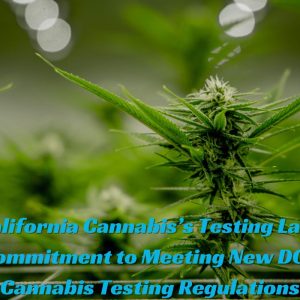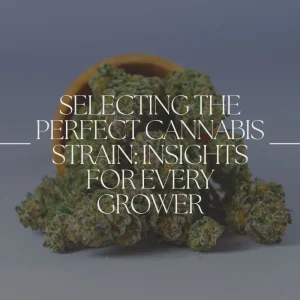When people think of cannabis and the Netherlands, the iconic image of Amsterdam’s coffeeshops often comes to mind. The Dutch approach to cannabis, characterized by its tolerance policy, stands out as a unique model that contrasts sharply with the strict prohibition seen in many other parts of the world. This article explores the history, impact, and ongoing debates surrounding cannabis in the Netherlands, providing a comprehensive look at how Dutch tolerance shapes the nation’s relationship with this controversial plant.
A Brief History of Cannabis Tolerance in the Netherlands
The Netherlands’ journey towards cannabis tolerance began in the 1970s. In 1976, the Dutch government revised the Opium Act, which formally differentiated between “hard” and “soft” drugs. This legal distinction allowed for the decriminalization of the possession and sale of small amounts of cannabis in regulated establishments known as coffeeshops.
The Rationale Behind Dutch Policy
Maurits Berger, former Mayor of Utrecht, explains the logic behind this policy: “The separation of soft and hard drugs in Dutch policy allows law enforcement to focus on more serious drug issues” (Source: Dutch News – Coffeeshop Policy Netherlands). By focusing resources on combating hard drugs, the Dutch government aimed to reduce the harm associated with drug use and prevent the criminalization of cannabis users.
The Impact of Dutch Tolerance
Crime and Public Safety
One of the most significant outcomes of the Dutch tolerance policy is its impact on crime and public safety. Dr. Martin J. Bonn, an addiction psychiatry expert, notes, “The Netherlands’ tolerance policy towards cannabis has led to a decrease in cannabis-related crime and public nuisance compared to countries with stricter prohibition models” (Source: Martin J. Bonn – University of British Columbia). By regulating the sale of cannabis, the Netherlands has been able to reduce the influence of the black market and associated criminal activities.
Usage Rates
A common concern about decriminalizing cannabis is that it might lead to increased usage rates. However, research suggests otherwise. Joan Hoeymans, a Dutch drug policy researcher, states, “The Netherlands’ tolerance policy has not led to a significant increase in cannabis use compared to other European countries” (Source: International Drug Policy Consortium – Dutch Drug Policy). This finding challenges the assumption that more relaxed cannabis laws lead to higher rates of consumption.
Economic and Social Effects
The economic and social effects of coffeeshops in Dutch cities have also been a subject of study. A team of sociologists at a Dutch university conducted research titled “The Social and Economic Effects of Coffeeshops in Dutch Cities,” which highlights the positive contributions of these establishments to local economies through tourism and employment.
Personal Experience: Visiting a Coffeeshop in Amsterdam
During my trip to Amsterdam last summer, I decided to visit one of the city’s renowned coffeeshops. The experience was both eye-opening and educational. The atmosphere inside was relaxed and welcoming, with patrons from all walks of life enjoying a safe space to consume cannabis. It was clear that these establishments were well-regulated and adhered to strict guidelines to ensure a responsible environment.
Regulation and Control
Vera Helleman, a spokesperson for the Dutch Cannabis Retailers Association (VOCA), underscores the importance of these regulations: “Regulations and restrictions on coffeeshops are essential to prevent them from becoming magnets for criminal activity” (Source: NL Times – Coffeeshop Regulations Netherlands). The strict rules governing coffeeshops include limits on the amount of cannabis one can purchase and prohibitions against advertising, which help maintain order and reduce potential negative impacts.
Challenges and Criticisms of Dutch Tolerance
The Backdoor Problem
Despite its successes, the Dutch model is not without its challenges. One of the most significant issues is the “backdoor problem,” where cannabis sold in coffeeshops is often supplied through illegal cultivation. Pascale Cannière, a criminologist at Leiden University, points out, “The Netherlands’ model is not without its challenges, such as the backdoor problem (illegal cannabis cultivation supplying coffeeshops) and limited access for tourists” (Source: Leiden University – The Dutch Cannabis Experiment). This gray area in the supply chain poses a risk for criminal activities and complicates efforts to fully regulate the market.
Access for Tourists
Another ongoing debate is the access of tourists to coffeeshops. While Amsterdam remains relatively open, some cities have restricted access to residents only, aiming to reduce drug tourism and its associated problems. This has led to mixed reactions from business owners and residents alike.
Expert Perspectives on Dutch Tolerance
Broader Implications and Adaptability
Ethan Russo, MD, an ethnopharmacologist and cannabis researcher, offers a nuanced view: “While the Dutch model offers insights, it’s crucial to consider factors like social context and regulations when evaluating its applicability to other countries” (Source: Project CBD – Ethan Russo, MD). This perspective is important for understanding that what works in the Netherlands may not be directly transferable to other nations with different social and legal contexts.
Studies and Research on Dutch Cannabis Policy
Long-Term Impact on Use and Crime Rates
A study titled “The Long-Term Impact of the Dutch Tolerance Policy on Cannabis Use and Crime Rates” by a research team at the University of Amsterdam provides valuable insights into how the policy has shaped Dutch society. The study found that the regulated environment has contributed to lower crime rates and stable usage levels.
Comparative Analysis of Regulation Models
Another relevant study is “A Comparative Analysis of Cannabis Regulation Models: The Netherlands vs. the United States” by a team of public health researchers. This research compares the outcomes of different regulatory approaches, highlighting the strengths and weaknesses of the Dutch model relative to other systems.
Public Opinion on Cannabis Regulation
Understanding public sentiment is crucial for any policy’s success. “Public Opinion on Cannabis Regulation in the Netherlands: A Longitudinal Study” by a team of political scientists provides a detailed look at how Dutch citizens view their cannabis laws. The study shows broad support for the current policy, with many appreciating the balance it strikes between regulation and personal freedom.
Personal Insights: Conversations with Locals
During my stay in the Netherlands, I had the opportunity to speak with several locals about their views on cannabis tolerance. Many expressed pride in their country’s progressive stance and felt that the policy had positively impacted their communities. They also highlighted the importance of education and responsible use, underscoring the cultural context that supports the Dutch model.
Conclusion: The Dutch Cannabis Experiment
The Netherlands’ approach to cannabis, characterized by its tolerance policy, offers a unique model that balances regulation with personal freedom. While it is not without its challenges, such as the backdoor problem and debates over tourist access, the policy has led to notable successes in reducing crime and managing usage rates.
Final Thoughts
For those considering the implications of cannabis legalization and regulation in their own countries, the Dutch experience provides valuable lessons. As Ethan Russo points out, it’s essential to consider social context and regulations when evaluating the applicability of the Dutch model to other settings.
Moving Forward
As the global conversation around cannabis continues to evolve, the Netherlands will likely remain a key reference point for policymakers and researchers. By continuing to study and refine their approach, the Dutch can offer ongoing insights into the benefits and challenges of cannabis tolerance.





